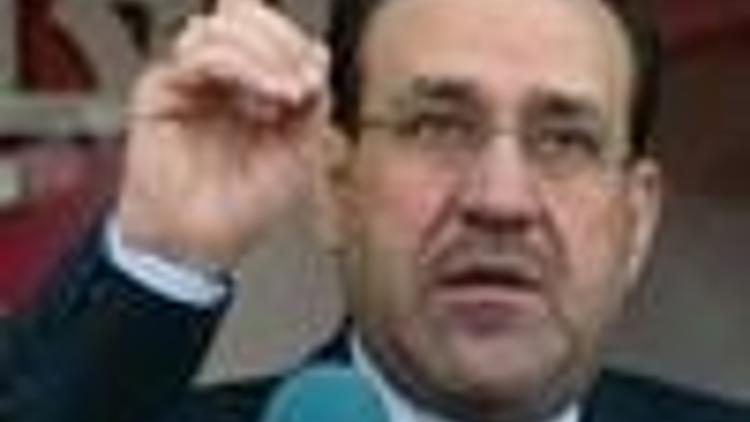Iraqi PM rejects view US troops needed for decade
Güncelleme Tarihi:

Iraqi Prime Minister Nuri al-Maliki distanced himself from statements by his government's spokesman that U.S. troops might remain in Iraq for a decade, much longer than agreed under a pact signed with Washington.
"What Dr. Ali al-Dabbagh announced about Iraqi forces needing 10 years to be ready was a personal opinion and does not represent the Iraqi government opinion," Maliki's office said in a statement issued late on Friday.
The statement underscored the sensitivity of the future of U.S. troops in Iraq following the 2003 U.S.-led invasion and the sectarian bloodshed and insurgency that it unleashed.
Violence has died down significantly in recent months.
But officials warn the security gains are fragile and could unravel as Iraq prepares for elections and U.S. troops pull out of cities next year, ahead of a full U.S. withdrawal by the end of 2011, as agreed in the U.S.-Iraq security pact.
Dabbagh, on a visit to Washington this week, raised the possibility of some of the 149,000 U.S. troops in Iraq remaining for longer than the date defined by the security pact.
"We do understand that the Iraqi military is not going to get built out in the three years. We do need many more years. It might be 10 years," Dabbagh said at a Pentagon press briefing.
He said that future Iraqi leaders would decide what kind of U.S. presence might be required after 2011.
Iraq's parliament approved the bilateral security agreement setting the end-2011 deadline after fierce and protracted debate. It is scheduled to be put to a referendum next year.
Opponents of the pact, including supporters of anti-American Shi'ite cleric Moqtada al-Sadr, have argued the pact gives legitimacy to a destructive foreign occupation and say they do not believe the United States will honour the withdrawal date.
Maliki, a Shi'ite who heads a coalition government, was seen as benefiting the most from the pact.
He could claim to be the one who ushered the U.S. invaders out of the country, bolstering his nationalist credentials, and at the same time continue to have the option of calling on U.S. forces for a few years to quell violence.
U.S. President-elect Barack Obama campaigned on a pledge to withdraw troops within 16 months, but he has said the United States may need to keep an undefined "residual" force in Iraq that might focus on training Iraqi forces.
Maliki's statement, attributed to a source in the prime minister's office, also denied statements Dabbagh made in Washington regarding an Iraqi proposal to form a regional trading and security bloc akin to the European Union.

